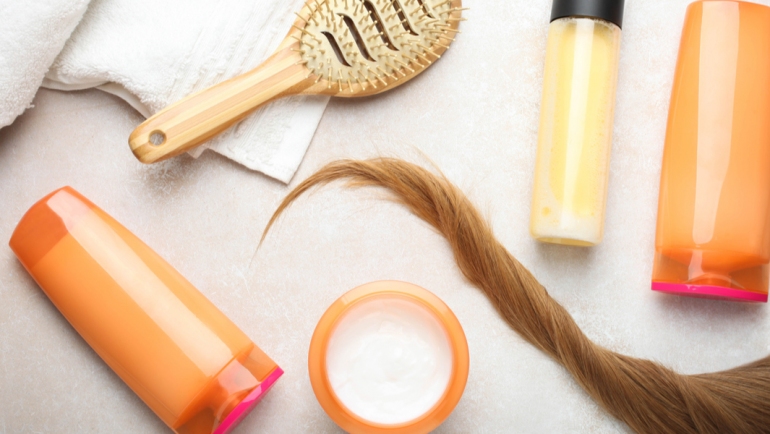Is Tea Good for You?
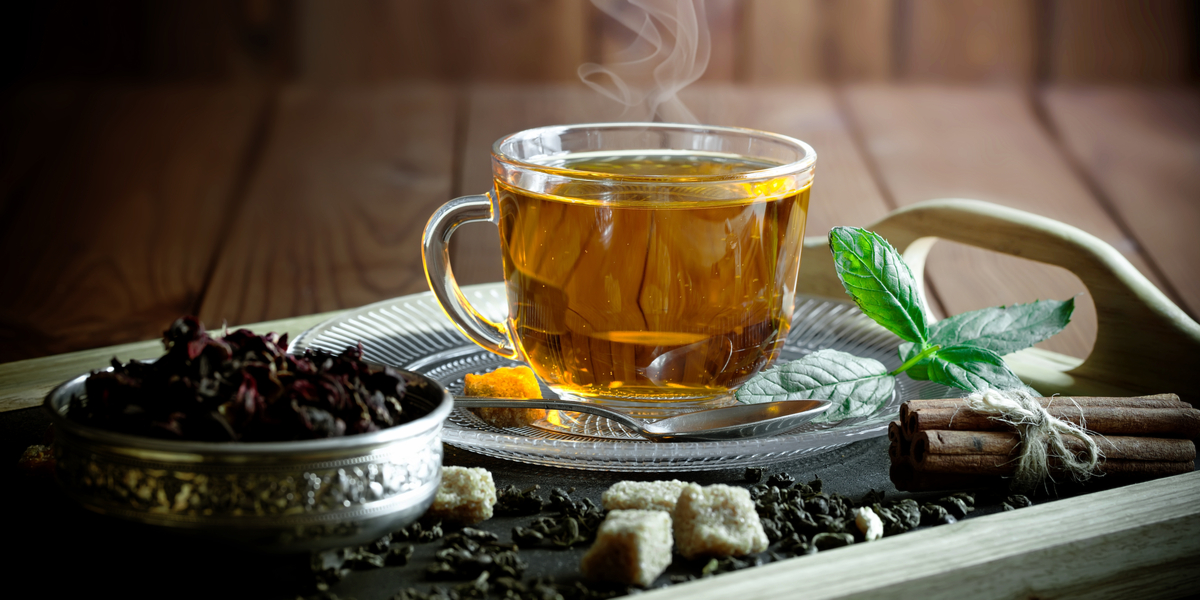
For centuries, many cultures all around the world have looked to tea consumption as somewhat synonymous to need and sustenance and not merely any other beverage. Generally speaking, is tea good for you?
Regarded as nothing short of miracle ambrosia, the drink has long been dubbed as the key to good health, both physically and spiritually.
Reading leftover leaves has become a common practice because drinking the stuff is so deeply ingrained in some cultures. Tea is considered a soothing drink to the body. Some even believe it to be vital to happiness, success, and spiritual healing.
Whether or not you are impartial to these beliefs, the scientific evidence of drinking it is undeniable at best.
In some form or another, chances are you’ve had your own taste of the drink. Tea can be taken hot, cold, iced, steeped, mixed into another food or liquid, and a dozen other ways.
There are also hundreds of different types of teas. Whatever tickles your fancy is out there! Are you inclined to know more about this wonderful concoction?
Here we break down some of the background, benefits, and even dangers of drinking tea.
What are the Benefits of Drinking Tea?
Tea has been around for a very long time, arguably as old as civilization itself. Hundreds of years ago, people would gather what they would deem as medicinal herbs, steep it in boiling water, and serve it steaming hot. That’s not much different from the practices of today.
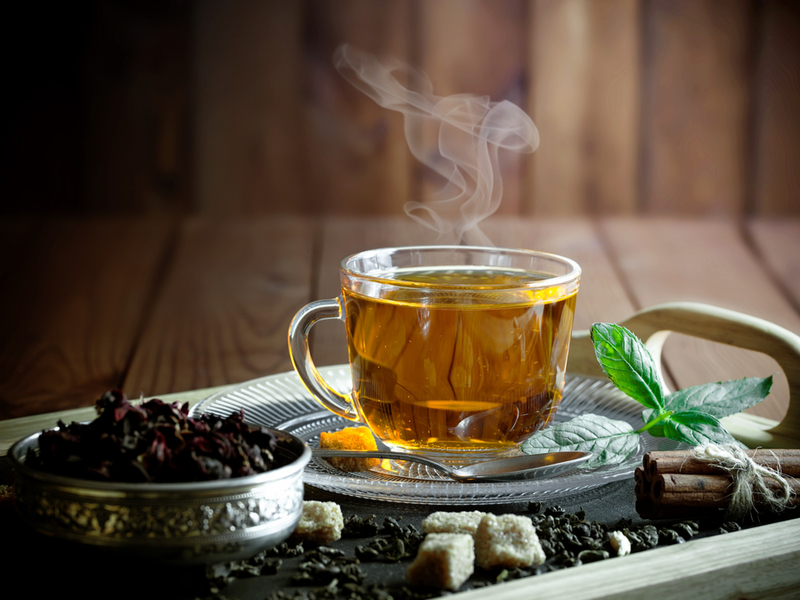
But is tea good for you even if you’re not sick or cold? While it may have been a medicinal drink before, and still is depending on what kind it is, the beverage can be consumed anytime. In fact, it’s pretty common to drink it every morning at breakfast or before bed at night.
Does it benefit the body as much as our ancestors believed it did? Recent studies suggest that tea has great potential.
Some teas could help with long-term illnesses such as cardiovascular disease like heart problems, certain types of cancer, and diabetes. It could also help with minor ones such as headaches, lower cholesterol and blood sugar levels, and mental focus and attentiveness.
Its antioxidants also make for a good detoxifier for the body. Not to mention, most if not all, tea is all-natural. Fresh or dried leaves of different plants and herbs make up the tiny bags or loose ingredients in a tin can. The most popular varieties are green, black, and oolong. All three are made from the leaves of the Camellia sinensis plant.
Most medical experts would agree that there is rarely a downside to drinking tea. In fact, nutritionists recommend it if you don’t have any complications or reactions to the content.
Is Tea Better than Coffee?
A little pick-me-upper certainly never hurt anyone. There are mornings where you can barely keep your eyes open let alone go to work or school and go about your daily activities. You may have a cup or two of your favorite caffeine source.
For most, that’s a steaming cup of latte or a shot of espresso. Others enjoy a nice cup of tea drizzled with honey or a teaspoon of sugar.
Is one a better option than the other? It really depends on your preference, at the end of the day. Caffeine is the most studied and consumed stimulant in recent history. So many people consume in various ways. If you’re a caffeine enthusiast, you’re no stranger to its effects on the body.
It has certain advantages such as alertness, a boost in energy and focus, improvement in physical performance and overall mood, and even reduces the risk of type 2 diabetes.
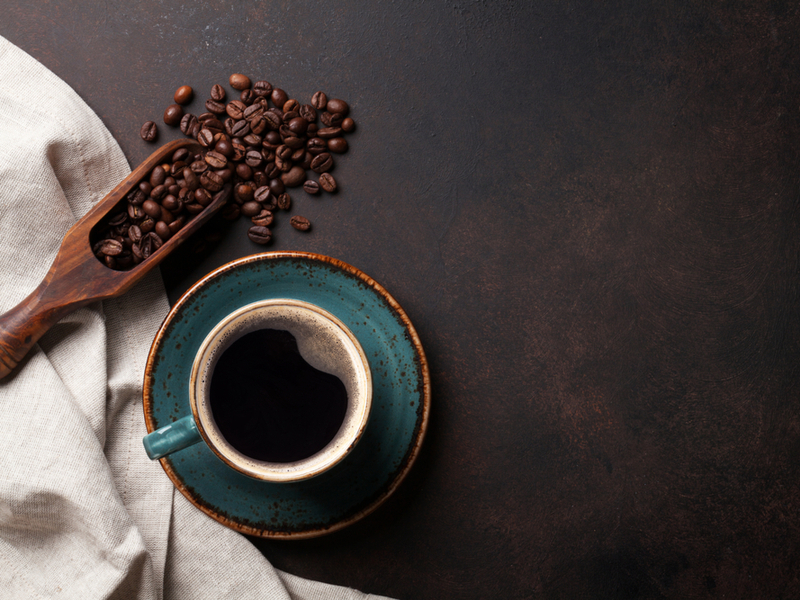
After a good cup of joe, avid drinkers state that they somehow feel more energized to go about their day. No question about it, drinking coffee is a must for some. But many are finding that tea is a good substitute as well.
Depending on the kind and brewing method, some teas contain more caffeine than others. Black, for example, has a stronger caffeine content than green or white tea.
Herbal ones like oolong can be decaffeinated depending on the other leaves mixed with it. The longer you steep the leaves no matter the kind, the stronger it will be in terms of caffeine.
Present many other beverages including both coffee and tea, caffeine can be good for you. However, there are also dangers to consuming it every day in excessive amounts.
Too much caffeine could result in increased chances of poor heart health, palpitations, and high blood pressure. In moderation, you are fairly safe.
So if caffeine can be both good and bad for you, is tea good for you after all or should you opt for coffee instead? Both drinks vary in antioxidant compositions. This means that they have their own benefits and disadvantages.
Moreover, tea contains less caffeine compared to coffee. Depending on your personal preference, that could be a positive or a negative thing.
Is it Good to Drink Tea Every Day?
Freshly made brewed tea is a great way to refresh yourself. Though adding natural sweeteners like honey or milk is also okay. But of course, everything has its limits. Even something seemingly as natural and healthy as herbs and leaves should be taken in moderation.
So is tea a good choice for you? If you’re highly sensitive to caffeine, it could be. Some varieties contain the amino acid L-theanine. This compound is said to have relaxing properties. Combined with caffeine, tea could make you relax while still being alert and non-drowsy.
There are decaffeinated options for tea drinkers too. You can always go for that, should you like it.
There are still dangers to drinking it too much or one too many daily. Apart from caffeine jitters, overconsumption of it could also lead to restlessness and anxiety symptoms. Herbal teas made from flowers, herbs, and fruits rarely contain caffeine.
Some of these herbal concoctions could even help you sleep and rest better and longer. Take lavender and chamomile, for example.
While medical experts agree on the benefits of tea and even encourage its consumption, moderation is always key.
Pregnant and nursing persons, as well as those with complicated medical histories, ought to consult first with their physicians. Some ingredients may not agree with your prescription medications or cause allergic reactions.
The fact is, there shouldn’t be any beverages, save for water, that you should drink every day. Absurd amounts of tea can be more harmful than beneficial. Experts also warn against laxative mixed in it as they often cause more reaction than what most users bargain for.
Be wary of herbal teas that claim to be a panacea and health-promoting for all illnesses. Science or the Food and Drug Administration have not evaluated by any of these statements.
Why is Milk Tea Harmful?
Unless you’ve been living under a pretty sturdy rock, you’ve probably heard of milk tea. It also goes by the name of boba, sweet milk, or bubble tea. A couple of years ago, it started trending on a global scale.
It became a staple snack drink because of the word tea, something akin to healthy. People flocked to it because it’s yummy and good for your health… right?
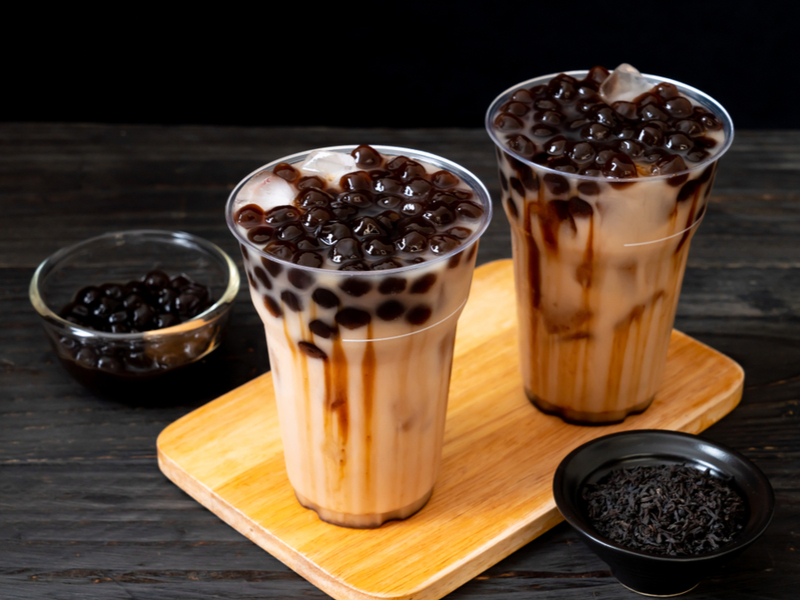
While its ingredients, depending on the authenticity, could have the health benefits of tea, the sweeteners and artificial flavoring could cancel it all out anyway. Is tea good for you? Sure, but this particular comes with many processed ingredients. Milk, tea, sugar, and tapioca pearls (or other similar “add-ons” like grass jelly or nata de coco).
That’s not to say you should immediately throw out your cup!
It isn’t at all a crime against all of humanity if you decide to frequent the local boba shop by the corner of your street. Like fast food, chips, and soda, drinking milk tea every now and then will most likely not cause any severe repercussions on your health.
However, frequent and excessive amounts could result in not much desirable complications like high blood sugar and cholesterol levels from all that sugar and artificial ingredients.
If you enjoy bubble tea, try choosing whole, unsweetened, or almond milk. Also, ask if you can have the sugar levels reduced. And once in a while, try making your own by simply adding milk and natural sweeteners to your home-brewed cup of tea.
Which Tea is the Healthiest?
As far as this article is concerned, tea, in general, is a pretty healthy drink. But more often than not, we have this inane urge to rank everything in a hierarchy.
Is tea good for you, and if so is there a certain type that is the best? Which one can leave feeling healthier with just one sip? Simply put, there is no such thing.
There are over hundreds of teas in existence. Depending on what you need it for, there is surely a kind of tea out there waiting to be brewed. However, because of the recent shift in the global climate, many have been aware of conscious consumption.
Many opt for natural, GMO-free products nowadays to do their part in helping save the planet.
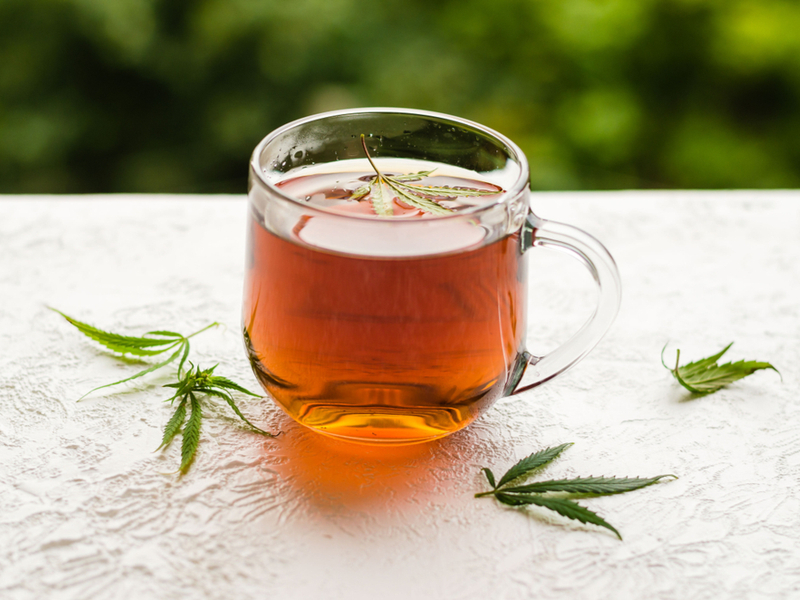
Yes, even your little bags of tea can affect climate change. The methods in which they are planted, cultivated, packed, and manufactured are all part of a process.
Whether this process has a positive or negative impact is what conscious consumption is all about. As a result, many are opting for herbal teas that can be cultivated in their own backyard.
If not, then certainly bought from reputable brands that promote environmentally-friendly products.
Among the frontlines of this is CBD-infused tea. Cannabidiol or CBD is a byproduct of hemp plants. It is a cannabinoid popular for its relaxing properties that could help with a number of ailments.
These include chronic pains, weight loss, anxiety, sleeping problems, and even a boost in the immune system.
The combination of CBD oil and the antioxidants present in brewed tea is certainly one that’s left an impression on many. Similar in health benefits, both CBD and tea work together seamlessly to provide twice the rewards to consumers.
Many also find that instead of simply taking each of the substances, why not take them both at the same time?
Incorporating CBD in your tea is pretty simple too. There are brands that sell pre-packaged CBD but you can make your own using your favorite hemp oil extract tincture. Simply brew your tea as usual and add in a generous helping of your flavored (or natural) CBD oil. Let it steep and mix and drink to your heart’s content!
Final Thoughts
If you’ve gotten this far, then you’ve probably deduced that tea is a wonderful drink. It surely has many health benefits that you can gain from.
If nothing else, drinking it hot will leave feeling warm and soothed after a long and tiring day. However, you should also heed the precaution of drinking it in moderation.
Is tea good for you is no longer the question, instead, is too much tea more beneficial or harmful? Depending on your caffeine tolerance, it could leave you feeling more energized for the day or too jittery to function properly.
Not to mention, caffeine can cause dependence and you don’t want that. The long term effects of caffeine dependency are not at all recommended.
In any case, you can still — and should — enjoy your cup of tea every day. However, if you feel yourself getting a bit overstimulated by the caffeine content, pace yourself, and cut back. Try alternating your usual black tea with CBD or other herbal infusions every other day. No harm in trying everything at least once, right?


